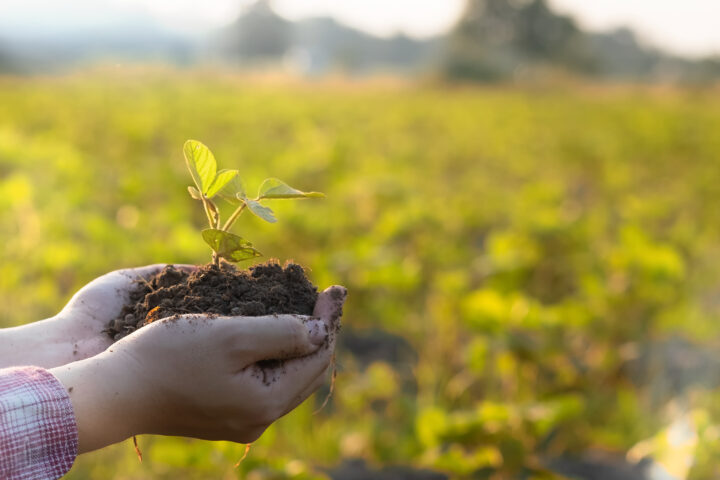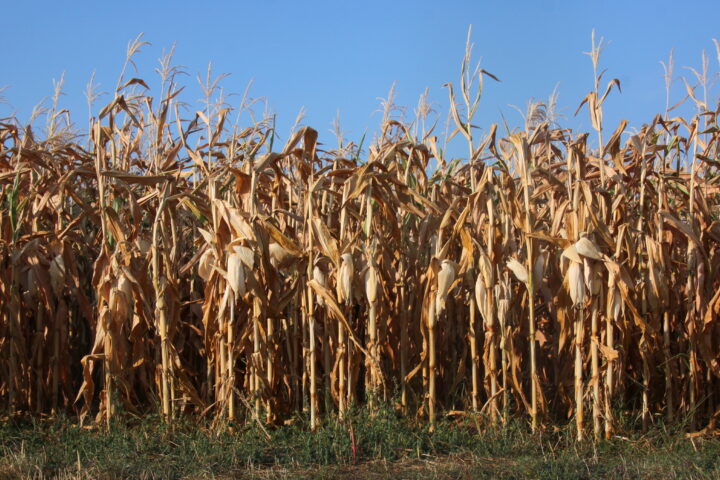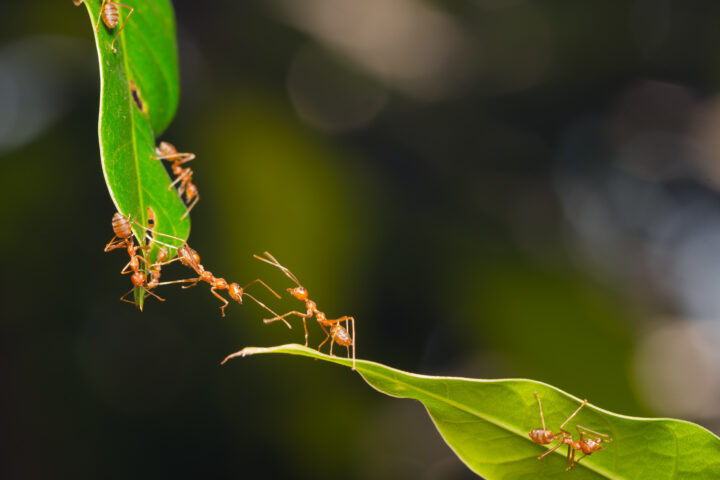«We protect what we use»
Regina Ammann is Head of Sustainability & Public Affairs Syngenta Switzerland. The diversity of ecosystems, species and crops is invaluable. They must be protected. That is undisputed. But opinions are divided on the «how». One reason is the perception of biodiversity as something static that needs absolute protection.
Monday, June 8, 2020
Nature is indeed in a constant state of change. And humans have always shaped nature, too. Many Alpine meadows, for example, with their rich biodiversity, only came into existence thanks to our ancestors clearing the land for agricultural use.
Time and again, nature provides industry with ideas for new medicines and products – for example, the observation that almost no weeds grow under the crimson-coloured caladbida plants. In the laboratory, it was shown that these plants produce a substance that inhibits the growth of other plants. A new herbicide had been discovered.
The catch: a land use of up to 9 kg/ha. To extract the necessary amount of substance, it would have been necessary to create huge cylinder brush plantations. So they took their chemical structure as inspiration and began to synthesise similar compounds with the desired properties.
Eleven years later, the structure-related active ingredient mesotrione was the result. It is 50–100 times more effective than the natural substance and safe to use. The herbicide Callisto, named after the original plant, was also introduced to the Swiss market and has been continuously improved ever since.
This example shows that our penchant for ‘naturalness’ can actually harm nature – and that synthetic substances from the laboratory help to protect natural resources.
Breeding and cultivation also benefit from biodiversity. Our crops are evolved wild plants; maize, for example, was bred by the Mayans from teosinte grass. And cultivated plants need microorganisms in the soil or the services of pollinating insects to grow. Recognising these benefits is the first step towards protection. To put it bluntly: ‘We protect what we use.’
Biodiversity needs to be interconnected so that species can survive and reproduce. Our own interconnectedness also helps: by interacting with people outside our own field of activity, we can learn why they attach particular values to biodiversity.
This can lead to joint conservation projects or even business models. In climate protection, there are incentives for farmers to store carbon in the soil and receive ‘carbon credits’ from the market in return. Why not ‘biodiversity credits’ as well?
Regina Ammann is Head of Sustainability & Public Affairs at Syngenta Switzerland. This article appeared in the 9 March 2021 edition of the BauernZeitung.
Kindly note:
We, a non-native editorial team value clear and faultless communication. At times we have to prioritize speed over perfection, utilizing tools, that are still learning.
We are deepL sorry for any observed stylistic or spelling errors.
Related articles

The Poison and the Dose
The debate about threshold values for chemical residues in water and food is often shaped by misunderstandings and emotions. Few topics show as clearly how far perception and science can drift apart. But what do limit values really mean? In autumn 2025, the Agricultural Policy Podcast and swiss-food.ch will explore our relationship with limits and risk in a five-part series. The highlight will be a live podcast recording on November 5 at Bogen F in Zurich.

Lack of diversity becomes an existential problem
The dwindling genetic diversity in fields is becoming an increasing problem. Unfortunately, this problem is growing steadily, partly because politicians in Switzerland and the EU are viewing the issue through ideological lenses instead of listening to science.

Stagnation instead of progress: Switzerland risks falling behind in new breeding techniques
An overview article in Schweizer Bauer shows how much the new breeding methods are preoccupying farming circles. Once the consultation process on the federal law has been completed, a bill is expected – then it will become clear whether there is actually the political will to approve it.

Ant infestation threatens Zurich communities
An invasive ant from the Mediterranean region is spreading rapidly in the canton of Zurich, threatening communities, construction projects, and agriculture. Insecticides could help—but their use remains severely restricted.

